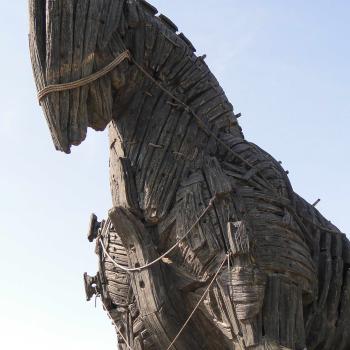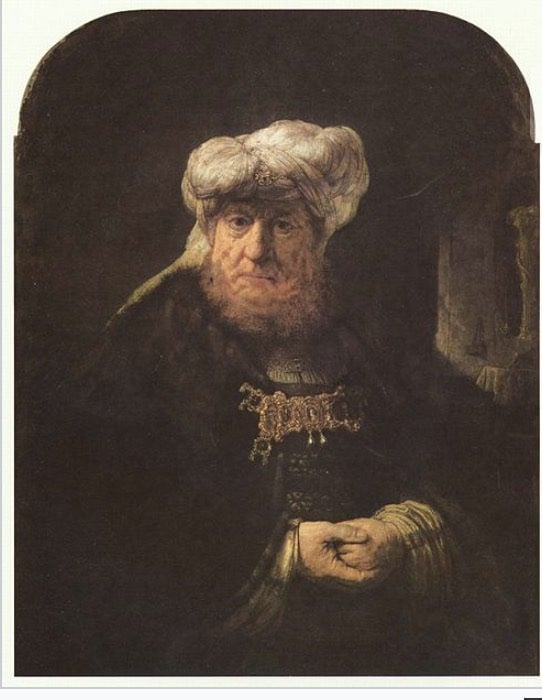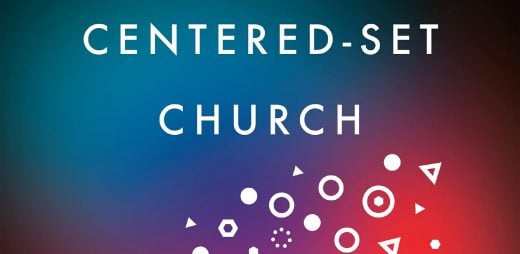Most evangelicals seem to agree––Christians and Muslims do not worship the same God. The question I want to ask is simply, “Why?”
When Wheaton suspended a teacher who thought otherwise, countless evangelicals spoke out to defend the school’s decision. Most people gave theological arguments, claiming that God’s nature were irreconcilable with Islamic views of God. For example, the one true God exists in three persons––Father, Son and Spirit.
While these are legitimate considerations, I will suggest a more directly biblical line of argumentation.
Israel Worshiped Different Gods
In the Old Testament, a few passages serve as close parallels to the contemporary context. In some instances, biblical writers provide direct evidence that contradicts modern claims that Christians and Muslims worship the same God.
First, consider 1 Kings 12, where Jeroboam fears that the northern kingdom will turn back to Rehoboam, king of Judah.
So the king took counsel and made two calves of gold. And he said to the people, “You have gone up to Jerusalem long enough. Behold your gods, O Israel, who brought you up out of the land of Egypt” (12:28)
In vv. 29–33, Jeroboam sets up an entire cultic system in an effort to simulate the worship that happened in Jerusalem. The key observation is that the northern kingdom begins to worship the idols yet claim that they worship the gods who brought them from Egypt.
Notice the Lord’s rebuke in two different passages. In 1 Kings 14:9, we read:
but you have done evil above all who were before you and have gone and made for yourself other gods and metal images, provoking me to anger, and have cast me behind your back,
Similarly, in 2 Chron 13:9,
Have you not driven out the priests of the LORD, the sons of Aaron, and the Levites, and made priests for yourselves like the peoples of other lands? Whoever comes for ordination with a young bull or seven rams becomes a priest of what are no gods.
Whereas 1 Kings says the calves are “other gods,” 2 Chronicles unambiguously clarifies that calf idols are not actually gods.

It is not a problem that these texts refer to “gods” (plural) as opposed to God (singular). In the original golden calf debacle, Aaron likewise said, “These are your gods, O Israel, who brought you up out of the land of Egypt!” (Exod 32:4, 8); however, Aaron plainly does not he is abandoning the Lord. Verse 5 states, “When Aaron saw this, he built an altar before it. And Aaron made a proclamation and said, ‘Tomorrow shall be a feast to the Lord.’”
Furthermore, the apparent problem of simultaneously worshiping “gods” and “the Lord” goes away when one recognizes that a part of Israel’s problem may be that they were veering from “exclusive monotheism” to “inclusive monotheism” (cf. Bauckham, Jesus and the God of Israel, 108–14).
In short, although these Israelites thought they worshiped the Lord, they in fact worshiped “other gods,” which were not truly “gods” at all.
What about the New Testament?
In John’s Gospel, a couple of passages are also suggestive. In John 8, Jesus debates with the Jewish leaders about who their true Father is. For Jesus, the contrast could not be more drastic. He says to them,
“You are doing the works your father did.” They said to him, “We were not born of sexual immorality. We have one Father––even God.” Jesus said to them, “If God were your Father, you would love me, for I came from God and I am here. I came not of my own accord, but he sent me. . . . You are of your father the devil, and your will is to do your father’s desires. He was a murderer from the beginning, and does not stand in the truth, because there is no truth in him. When he lies, he speaks out of his own character, for he is a liar and the father of lies.” (8:41–42, 44)
Although the Jews themselves claimed the one true God as their Father, Jesus corrects them by identifying their true father as the devil. Obviously, we should not confuse following God and the devil.
Jesus does not allow room for the view that these Jews were worship the same God that he followed. They followed the devil.
When they debate who is their true “father,” they are clearly talking about who is the god they worship. Hence, John 8:54–55 says,
Jesus answered, “If I glorify myself, my glory is nothing. It is my Father who glorifies me, of whom you say, “He is our God.” But you have not known him. I know him. If I were to say that I do not know him, I would be a liar like you, but I do know him and I keep his word.
Finally, I suspect that John 4:21–23 might be relevant, though I haven’t fully thought it out. Speaking to the Samaritan woman, Jesus says,
Woman, believe me, the hour is coming when neither on this mountain nor in Jerusalem will you worship the Father. You worship what you do not know; we worship what we know, for salvation is from the Jews. But the hour is coming, and is now here, when the true worshipers will worship the Father in spirit and truth, for the Father is seeking such people to worship him.
Do Christians & Muslims Worship the Same God?
It seems hard to imagine passages that speak more directly to the debate about whether Christians and Muslims worship the same God. The above passages give examples where two groups of people claim to worship the same God. If anyone could make that claim, it would be people like the northern kingdom and the Jews of Jesus’ day.
Yet, the above texts make it clear––
not even those in Israel worshiped the same God. If so, how much more must we reject the assertion that Christians and Muslims today worship the same God?













